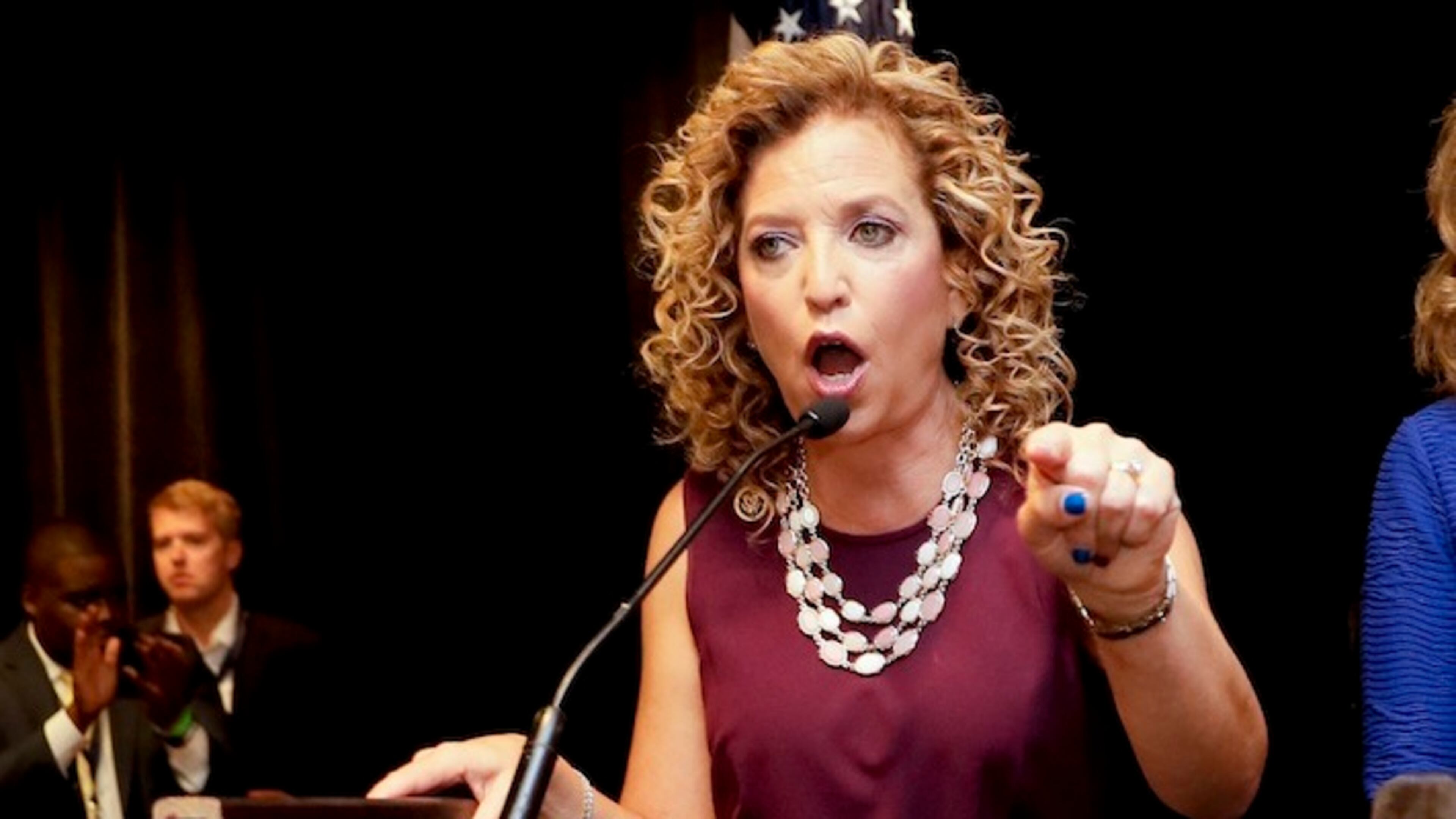After email scandal, Wasserman Schultz's congressional seat is in jeopardy

Miami Herald staff writer Alex Daugherty contributed to this report.
For the first time in her 24 years in politics, U.S. Rep. Debbie Wasserman Schultz is running scared.
Even before her leadership of the Democratic National Committee unraveled before the Democratic convention in Philadelphia, Wasserman Schultz knew that for the first time in her political career, she was facing a serious primary challenger. Tim Canova, a Nova Southeastern University law professor and political, has become something of a regular on national television and an expert fundraiser.
In response, Wasserman Schultz stepped up her campaign. She sought help from President Barack Obama and Vice President Joe Biden. She raised millions of dollars. She held roundtables on gun violence, media events on Zika prevention and forums with Venezuelan Americans.
Now, with less than a month to go before the Aug. 30 primary, she also has to contend with the fallout of the WikiLeaks DNC scandal. She was forced to step down as DNC chair July 24 after thousands of leaked emails showed that the committee favored Hillary Clinton over Bernie Sanders.
Since the convention, Wasserman Schultz uncharacteristically shunned the limelight and kept a low profile in her district.
- After her disastrous Florida delegation breakfast in Philadelphia on July 25, at which she was booed, she stayed largely out of the spotlight and appeared only at friendly events.
- Her campaign spokesman had no public events to announce last Monday and said that Wasserman Schultz wouldn't appear at a candidate forum that Canova attended last week. The only campaign events her campaign revealed were private: a fundraiser with Biden Friday and a meeting with the Miami Herald editorial board.
- A frequent Twitter user, she went silent after her DNC downfall.
Despite the setbacks, Wasserman Schultz remains a strong contender for re-election. As a longtime incumbent, she has high name recognition and close relationships with likely voters and donors willing to support for her this month, and plenty of money to attackp Canova on TV.
Wasserman Schultz hasn't faced a primary challenge since 1992, when she won her first race for the state House. She won her first congressional seat in 2004. Since hers is a liberal-leaning district, the Democrat who wins the Aug. 30 primary is virtually guaranteed to win the Nov. 8 general election.
Wasserman Schultz and Canova have had polar opposite approaches to their campaigns. While Canova lists events on his campaign website and provides the media with updates on his fundraising and staff hires, Wasserman Schultz's campaign has operated more in secret — her campaign calls it being "strategic."
She has been quiet about her fundraising until her campaign actually files official finance reports, and won't comment on internal polls. She raised $3.1 million through June while Canova's campaign says he raised $2.8 million through July.
It's not unusual for an incumbent to play her campaign closer to the vest while a newcomer shares more information: He needs the attention while she wants to have control over any opportunities he may have to attack her.
But by avoiding any joint appearances, Wasserman Schultz creates the impression that she fears Canova. And that's contrary to her persona as a politician known for not backing away from a fight.
However, political observers say don't count her out.
Jim Kane, a longtime Broward-based pollster, says that while Canova's fundraising makes him competitive, the demographics of the primary voters benefit Wasserman Schultz.
"This is an older demographic," he said. "Democratic primary voters are more knowledgeable, less influenced by ads. I just don't see her losing. It could be close, a 10-point difference."
Some Democratic activists say that Canova — who first moved to Hollywood four years ago — hasn't put in the years in the trenches. Meanwhile, Wasserman Schultz has fought for gay rights, abortion rights and equal pay for women for decades. He has focused his legal career on calling for Wall Street reform and was named by Sanders to a committee on the Federal Reserve.
In a campaign mailer, Wasserman Schultz makes no mention of Canova, instead focusing her fire on Republicans.
"We must stop Donald Trump from getting anywhere near the White House," she wrote in a recent mailer. "I am a proud, lifelong Democrat with the courage and conviction to stand up to — and stop — radical Republican attacks on women's health care, the environment and working families."
Canova has attacked her for opposing the state's 2014 medical marijuana amendment, backing Big Sugar, voting to fast track the Trans Pacific Partnership and taking money from big banks.
Interest in his campaign has escalated in the past couple of weeks.
"People want me to be the main course now," he said. "It's grueling. I won't deny it."

